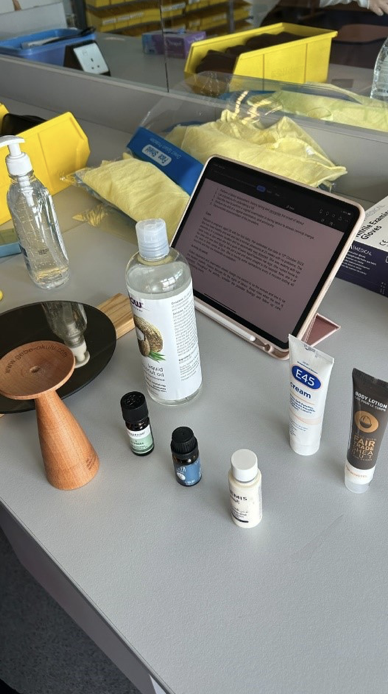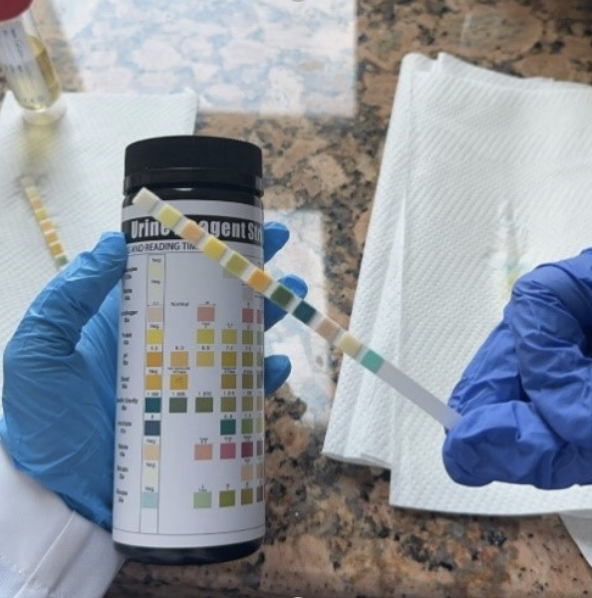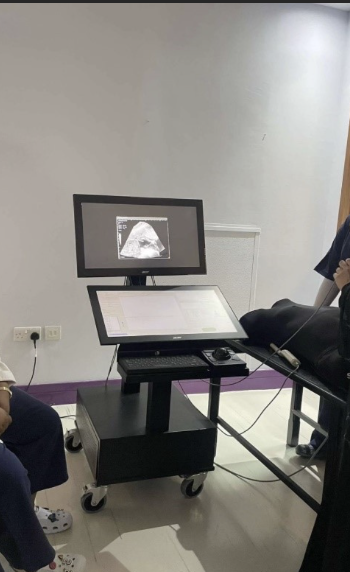For the past three years we have been following the journey of Georgina Sosa and Maeve O’Connell as they have been developing a high quality midwifery degree programme in Abu Dhabi. In this article Maeve shares the next part of their story and developments being made.
__________________________
This year has seen major changes in our programme as per the Commission Academic Accreditation (CAA) for Higher Education in the UAE, all students no longer need to do a foundation year focusing only on the general subjects. Now, students enter their Major, in our case, Midwifery, in first year! While this has meant a lot of admin for us to update (by Dr Gina) and get approval for the new first year midwifery courses, it is fantastic for Midwifery as we now have two new class intakes: those who started direct into the first year on the new programme, and those on the old study plan who came into second year, as well as the third year cohort and our original fourth year students who will graduate in July 2025! Altogether, we now have more than forty students in total! This is a major achievement for the UAE. Even more encouraging is the recent launch of another Bachelors of Midwifery programme at the Higher Colleges of Technology. This is fantastic news for the future of maternity care in the UAE!
This semester, I began my Postgraduate Certificate in Education, so I find myself a student once again! For my first assignment, I was asked to reflect on two influential teachers in my life and how they have shaped my teaching principles. I selected two educators whose styles were both contrasting and complementary. The first was a clinical educator who was strict and employed a traditional, didactic teaching approach. However, they placed great emphasis on compassion, dignity, and respect in healthcare, consistently leading by example in clinical practice. The second educator was academic, with a strong focus on fairness and equality. They prioritized the student voice and autonomy, encouraged active participation, and emphasised the importance of evidence-based practice to drive innovation and transformational change.
Upon reflection, I’ve realised that my own approach to education is holistic, valuing both the humanistic and academic aspects of teaching. The three core teaching principles I prioritise are: 1) Compassionate and respectful care grounded in human rights, fairness, and equity; 2) Professional integrity and leadership by example; and 3) Maintaining high academic standards through evidence-based practice and scholarship. Additionally, I find that adopting a Universal Design for Learning approach is invaluable for accommodating diverse learning styles.
It has been fantastic to get to know the new student intake and see my colleague Joanna in full teaching flight! We hit the ground running this year with the much larger cohort, it is busy! Joanna had the first and second years for anatomy and physiology and Clinical Health Assessment for Midwives (CHA) Theory while I taught the fourth years research intensely for two weeks and Karradene was out in the clinical placement with the third years, who were then joined by the fourth years. I have been supervising the fourth year cohort research projects and also teaching the lab component of Clinical Health Assessment for Midwives to the second years.
I asked one of our students her highlight of the semester and she said there were many. We were involved in many events. This student told me she loved the day they got to ‘Twinkle the rooms’. This is an exercise based on one of my favourite articles in the Practising Midwife called ‘Twinkling the rooms’ (Byrom and Lai-Boyd, 2021). The students pre-read the article and we discussed it in this class, then I gave the students the equipment and the freedom to prepare for the arrival of a woman in the first stage of labour in a way that would promote oxytocin and support physiological birth. I acted as the woman in labour, and we acted out the scenario where in the end I had a pool birth while kneeling upright in a dimly lit room with fairy lights having had massage and many positions using the ball beforehand, intermittent auscultation and one to one midwifery support. We did the scenario twice. We reflected after the first one and made changes to improve the care and then we invited Jo and the first years to observe. In take one, there were a few small things that they had not considered such as checking the birth plan and having the room prepared. While they had everything ready to go, the lights were still on when the woman came in and then they turned them off and on again a few times during the procedures without considering the effects on the environment. Take two, the room was ready, the scene was set, twinkle twinkle! As the labouring woman I felt I had control and autonomy, I felted respected, and I listened to my body as my midwives were with me. We reflected as a group with Jo and the first years. There were many questions, and we were able to shift some perceptions about childbirth, especially for the first-year students experiencing our simulations for the first time. They witnessed firsthand the strength of midwifery and the importance of woman-centered care.

Another day they enjoyed was learning about urinalysis. The students had the freedom to work with each other on checking the urinalysis using the reagent strips and reporting the results.

As this was my second time teaching CHA Labs, I recognised several opportunities to enhance the learning experience. One key addition was the introduction of ultrasound, given its critical role in the pregnancy journey. We organised a simulated Ultrasound Workshop, hosted by Dr. Lina Jallad from the RMI department at Fatima College of Health Sciences. The student midwives were thrilled with the experience!
At the time, the students were also studying embryology and fetal growth and development in theory, so the ultrasound workshop provided a valuable visual aid to help them better understand these concepts. Through simulation, they gained an appreciation for the sensitivity required in early pregnancy scanning, particularly the use of transvaginal rather than abdominal methods. Dr. Lina addressed all their questions regarding the ultrasound process.
By attending this session, the students gained deeper insight into the patient’s ultrasound experience and expanded their knowledge in this crucial area.

We are deeply grateful to our clinical partners for their continued support of our students during their clinical placements. Clinical mentorship plays a vital role in helping students achieve competency and meet their learning objectives.
Karradene has been collaborating closely with the clinical teams to enhance both technical and critical thinking skills. This year, students have been given more diverse opportunities to express themselves. Previously, we focused solely on structured reflective models, but now there is greater scope for creativity in their reflective practice.
We are approaching the highlight of our year—the first International UAE Midwifery Conference, organized by the Emirates Nursing Association (Midwifery Section). This two-day, CME-accredited event will take place on the 9th and 10th of November in Dubai. It will provide an excellent platform for sharing innovations and insights across the region, under the theme, Midwifery Practice: Fostering Conducive Environments for Improved SRMNAH Care.
The recent publication of the updated Scope of Midwifery Practice by the Ministry of Health and Prevention comes at a pivotal moment for the UAE (MOHAP, 2024). We are proud to have been part of the National Committee, under the leadership of Dr. Georgina and Karradene, which guided the development of this crucial document. Now, the focus shifts to putting these changes into action to enhance maternal and newborn health across the UAE.
References
Byrom, S. and Lai-Boyd, B. (2021). Normal Birth 8: Twinkling the rooms: Optimising Normal Birth in a Hospital Setting. The Practising Midwife, 24 (4).
MOHAP (2024). Scope of Registered Midwife UAE. Abu Dhabi.
Dr Maeve O’Connell
Fatima College of Health Science, Abu Dhabi
November 2024



1 comment
Wonderful update, I thoroughly enjoyed that, all the best!
Comments are closed.